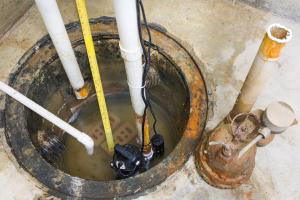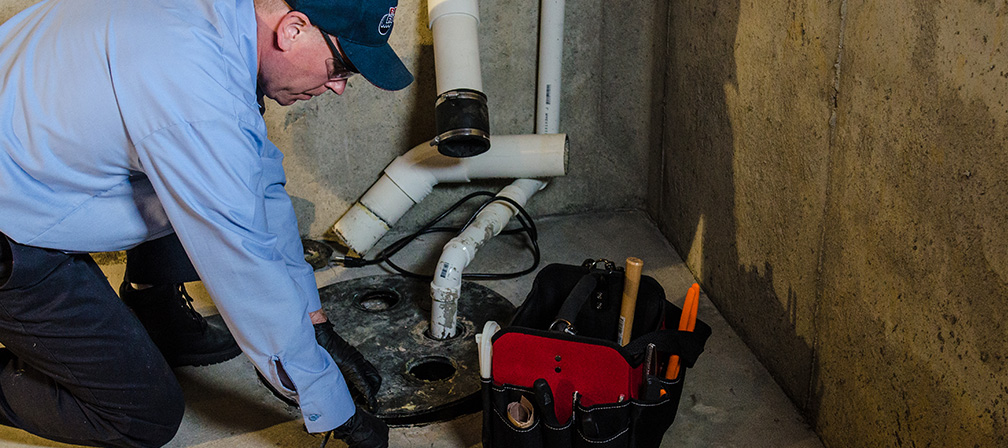The article following next pertaining to Keep Your Sump Pump Clean, It'll Keep You Dry is absolutely interesting. Try it and draw your own personal final thoughts.

Sump pumps are important elements in several homes, specifically in areas vulnerable to flooding or too much wetness. They aid stop water damages by successfully eliminating excess water from basements or crawl spaces. Nevertheless, like any other home appliance, sump pumps require routine upkeep to ensure they function properly when required one of the most. Cleansing your sump pump is an essential part of its maintenance, and understanding exactly how to do it correctly can conserve you from expensive repair services and prospective catastrophes.
Intro
Preserving a clean sump pump is vital for its proper performance and durability. Ignoring this necessary job can lead to obstructions, breakdowns, and ultimately, water damage to your residential or commercial property. Consequently, finding out how to cleanse a sump pump is crucial for house owners that depend on these tools to maintain their cellars completely dry and secured.
Indications of a Dirty Sump Pump
Recognizing when your sump pump needs cleansing is critical for avoiding possible malfunctions. Some usual signs that suggest a filthy sump pump consist of odd noises during procedure, reduced water circulation, and noticeable particles in the pit. If you discover any of these signs, it's important to cleanse your sump pump without delay to avoid any type of further problems.
Planning for Cleansing
Prior to you start cleansing your sump pump, it's important to take some safety preventative measures. Beginning by turning off the power to the pump to prevent any kind of electrical mishaps. Furthermore, wear suitable safety gear, such as gloves and goggles, to shield yourself from dust, debris, and possible pathogens.
Recognizing the Sump Pump
Before diving into the cleaning process, it's necessary to have a standard understanding of just how a sump pump works. Typically installed in a pit or container below the cellar floor, a sump pump consists of a number of crucial parts, including a pump, a float switch, and a discharge pipe. When water collects in the pit, the float button turns on the pump, which after that pumps the water out via the discharge pipe, away from the building's foundation.
Detailed Guide to Cleaning Up a Sump Pump
Shutting Off the Power
Begin by detaching the power supply to the sump pump to stop any crashes while cleaning.
Looking For Correct Functioning
Prior to re-installing the pump, perform a quick test to make certain that the float switch triggers the pump properly. Put some water right into the sump pit and observe the pump's operation. If everything is functioning correctly, you can rebuild the pump and reconnect the power supply.
Removing Particles and Dust
Make use of a pail or a scoop to eliminate any kind of visible particles, dirt, or sediment from the sump pit. Dispose of the particles correctly to avoid it from blocking the pump or the discharge pipeline.
Cleaning the Pump and Drift Switch Over
As soon as the pit is free from particles, thoroughly get rid of the pump from the pit. Examine the pump and the float button for any type of indicators of damage or wear. Make use of a soft brush or fabric to clean up the surfaces and remove any kind of gathered gunk.
Flushing the System
After cleansing the pump and float button, flush the sump pit with clean water to eliminate any type of remaining dust or sediment. This will certainly aid make sure that the pump operates efficiently and effectively.
Maintenance Tips to Keep Your Sump Pump Clean
Along with regular cleaning, there are several upkeep ideas you can comply with to keep your sump pump in optimal condition:
Final thought
Cleansing your sump pump is a crucial facet of its upkeep and makes certain that it operates efficiently when you need it one of the most. By complying with the steps detailed in this guide and including normal upkeep right into your routine, you can prolong the lifespan of your sump pump and secure your home from water damages.
6 STEPS ON HOW TO CLEAN A SUMP PUMP PROPERLY
UNDERSTANDING SUMP PUMPS
Your sump pump plays a crucial role in protecting your home by managing and removing excess water. It primarily functions as a “shield”, guarding your basement against the damaging effects of water accumulation. The pump is housed in a sump pit in the lowest part of your basement, and its job is to pump out any water that collects there.
During heavy rainfalls or when snow melts rapidly, water can infiltrate your basement, posing potential risks like flooding, structural damage, and harmful mold growth. Here, the sump pump springs into action, pumping out the intruding water and directing it away from your home.
SAFETY FIRST
Before cleaning, remember to prioritize safety. Disconnect the sump pump from the power source to prevent any accidental electric shocks. Also, wear sturdy gloves to protect your hands from any sharp or dirty components within the pump.
REMOVE THE SUMP PUMP
After ensuring your safety, the next step is to remove the sump pump from its pit. Doing this might require careful maneuvering as you don’t want to damage any pump components. Once removed, clean the sump pit to remove any accumulated debris or sludge.
INSPECT THE PUMP
Inspect the pump for any visible signs of wear or damage. Check the power cord, float switch, and impeller housing. If any components look worn out or damaged, consider replacing them to ensure optimal performance.
CLEAN THE PUMP
Thoroughly clean the pump with warm, soapy water. Make sure to rid it of any dirt, gravel, or other debris that might impede its performance. You can use a toothbrush to clean the small, hard-to-reach parts of the pump.
REINSTALL THE SUMP PUMP
Reinstall the pump into the sump pit Make sure it’s positioned correctly to remove the water effectively Once it’s back in place, reconnect it to the power source TEST THE PUMP
Finally, pour some water into the pit to ensure the pump works correctly. It should start automatically and begin pumping out the water; if it doesn’t, check the power source and the positioning of the pump.
Remember, while cleaning your sump pump is an essential part of home maintenance, hiring a professional plumber for a thorough inspection and cleaning at least once a year is also important. This will ensure that your pump is in optimal condition, ready to protect your home from potential water damage.
BEST PRACTICES FOR CLEANING SUMP PUMP DISCHARGE PIPES
Regular Inspection: Regularly inspect your discharge pipes, especially during heavy rainfall or snowmelt periods. Look for any signs of blockage or damage. Early detection of problems can prevent serious issues down the line. Periodic Cleaning: Over time, sediment and debris can accumulate in the discharge pipes, impeding the flow of water. Regular cleaning helps keep the pipes clear and functioning efficiently. You can use a high-pressure water jet to effectively clean the pipes. Insulation During Winter: In colder climates, discharge pipes can freeze, blocking the outflow of water. Protect your discharge pipes from freezing temperatures by insulating them with foam pipe insulation. This will ensure the sump pump can continue to discharge water even in freezing conditions. Proper Positioning: The discharge pipe should be positioned to direct water away from your home’s foundation. Improper positioning can lead to water seeping back into the basement. Ensure the pipe is long enough and angled correctly. Installation of a Check Valve: A check valve prevents water from flowing back into your sump pit after the pump has pushed it out. Installing a check valve helps maintain the efficiency of your sump pump and reduces the risk of flooding. Minimize Pipe Turns: Every curve or turn in the discharge pipe can decrease the efficiency of water flow. By minimizing turns and bends in your discharge pipe, you can increase the efficiency of your sump pump. https://www.fullspeedplumbing.com/how-to-clean-a-sump-pump-properly9999/

Do you appreciate reading about ? Create a remark further down. We will be delighted to find out your feelings about this posting. Hoping that you visit us again soon. Kindly take the opportunity to share this article if you enjoyed reading it. I am grateful for being here. Kindly visit our website back soon.
Estimating